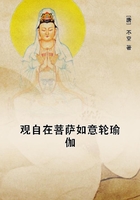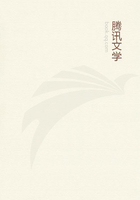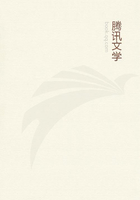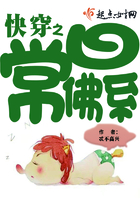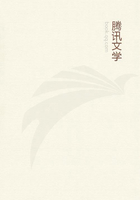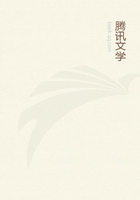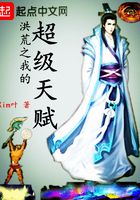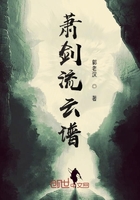Come, princes of the ragged regiment, You of the blood!
Prigg, my most upright lord, And these, what name or title e'er they bear, Jarkman, or Patrico, Cranke or Clapper-dudgeon, Frater or Abram-man--I speak of all.--Beggar's Bush.
ALTHOUGH the character of those gipsy tribes which formerly inundated most of the nations of Europe, and which in some degree still subsist among them as a distinct people, is generally understood, the reader will pardon my saying a few words respecting their situation in Scotland.
It is well known that the gipsies were, at an early period, acknowledged as a separate and independent race by one of the Scottish monarchs, and that they were less favourably distinguished by a subsequent law, which rendered the character of gipsy equal, in the judicial balance, to that of common and habitual thief, and prescribed his punishment accordingly. Notwithstanding the severity of this and other statutes, the fraternity prospered amid the distresses of the country, and received large accessions from among those whom famine, oppression, or the sword of war, had deprived of the ordinary means of subsistence. They lost, in a great measure, by this intermixture, the national character of Egyptians, and became a mingled race, having all the idleness and predatory habits of their Eastern ancestors, with a ferocity which they probably borrowed from the men of the north who joined their society. They travelled in different bands, and had rules among themselves, by which each tribe was confined to its own district.
The slightest invasion of the precincts which had been assigned to another tribe produced desperate skirmishes, in which there was often much blood shed.
The patriotic Fletcher of Saltoun drew a picture of these banditti about a century ago, which my readers will peruse with astonishment.
"There are at this day in Scotland (besides a great many poor families very meanly provided for by the church boxes, with others, who, by living on bad food, fall into various diseases) two hundred thousand people begging from door to door. These are not only no way advantageous, but a very grievous burden to so poor a country.
And though the number of them be perhaps double to what it was formerly, by reason of this present great distress, yet in all times there have been about one hundred thousand of those vagabonds, who have lived without any regard or subjection either to the laws of the land, or even those of God and nature; . . .
No magistrate could ever discover or be informed, which way one in a hundred of these wretches died, or that ever they were baptized.
Many murders have been discovered among them; and they are not only a most unspeakable oppression to poor tenants (who, if they give not bread, or some kind of provision to perhaps forty such villains in one day, are sure to be insulted. by them), but they rob many poor people who live in houses distant from any neighbourhood. In years of plenty many thousands of them meet together in the mountains, where they feast and riot for many days; and at country weddings, markets, burials, and other the like public occasions, they are to be seen, both man and woman, perpetually drunk, cursing, blaspheming, and fighting together."Notwithstanding the deplorable picture presented in this extract, and which Fletcher himself, though the energetic and eloquent friend of freedom, saw no better mode of correcting than by introducing a system of domestic slavery, the progress of time, and increase both of the means of life and of the power of the laws, gradually reduced this dreadful evil within more narrow bounds. The tribes of gipsies, jockies, or cairds,--for by all these denominations such banditti were known,--became few in number, and many were entirely rooted out. Still, however, a sufficient number remained to give occasional alarm and constant vexation. Some rude handicrafts were entirely resigned to these itinerants, particularly the art of trencher-making, of manufacturing horn-spoons, and the whole mystery of the tinker. To these they added a petty trade in the coarse sorts of earthenware. Such were their ostensible means of livelihood. Each tribe had usually some fixed place of rendezvous, which they occasionally occupied. and considered as their standing camp, and in the vicinity of which they generally abstained from depredation. They had even talents and accomplishments, which made them occasionally useful and entertaining. Many cultivated music with success; and the favourite fiddler or piper of a district was often to be found in a gipsy town. They understood all out-of-door sports, especially otter-hunting, fishing, or finding game. They bred the best and boldest terriers, and sometimes had good pointers for sale. In winter, the women told fortunes, the men showed tricks of legerdemain; and these accomplishments often helped to while away a weary or stormy evening in the circle of the "farmer's ha'." The wildness of their character, and the indomitable pride with which they despised all regular labour, commanded a certain awe, which was not diminished by the consideration, that these strollers were a vindictive race, and were restrained by no check, either of fear or conscience, from taking desperate vengeance upon those who had offended them. These tribes were, in short, the Parias of Scotland, living like wild Indians among European settlers, and, like them, judged of rather by their own customs, habits, and opinions, than as if they had been members of the civilised part of the community. Some hordes of them yet remain, chiefly in such situations as afford a ready escape either into a waste country, or into another jurisdiction. Nor are the features of their character much softened. Their numbers, however, are so greatly diminished, that, instead of one hundred thousand, as calculated by Fletcher, it would now perhaps be impossible to collect above five hundred throughout all Scotland.

